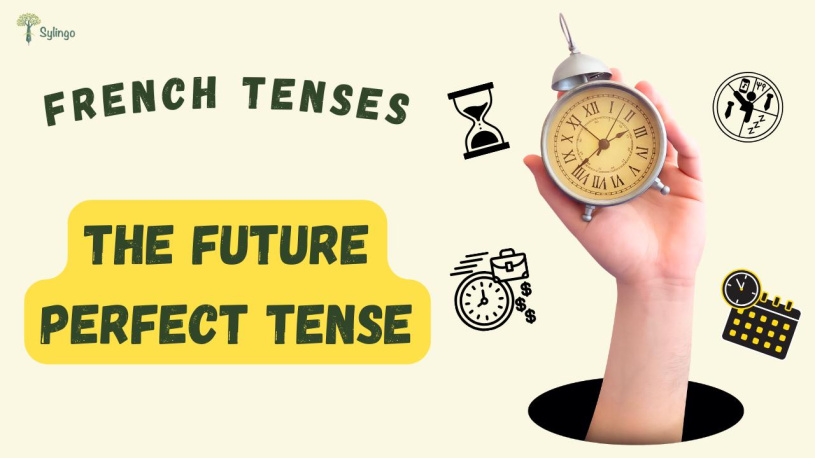The future perfect tense (Le futur antérieur) is used to indicate a belief that an event or action will be completed or will have occurred by a specific time in the future.
How to form Le futur antérieur:
To form Le futur antérieur, the auxiliary verb (être) or (avoir) is used in the simple future tense (le futur simple), along with the past participle (le participe passé) of the verb that is being conjugated.
The verb "avoir" - Futur simple:
| Pronom | Avoir (aur) |
|---|---|
| je | aurai |
| tu | auras |
| il/elle | aura |
| nous | aurons |
| vous | aurez |
| ils/elles | auront |
The verb "être" - Futur simple:
| Pronom | être (ser) |
|---|---|
| Je | Serai |
| Tu | Seras |
| Il/elle | Sera |
| Nous | Serons |
| Vous | Serez |
| Ils/elles | Seront |
Example with the verb "être" as an auxiliary verb:
The verb "partir" (to leave):
Example with the verb "avoir" as an auxiliary verb:
The verb Aimer - to love
When to use the future perfect tense (Le futur antérieur)?
The future perfect tense (Le futur antérieur) is used in French to express an action that will be completed in the future before another action takes place. It is formed using the future tense of the auxiliary verbs "avoir" or "être" combined with the past participle of the main verb.
Here are the main situations in which you would use Le futur antérieur:
1- To express an action completed before another action in the future:
-
Example: "Quand tu arriveras, j'aurai déjà mangé." (When you arrive, I will have already eaten.)
-
In this example, the action of eating (j'aurai mangé) will be completed before the action of arriving.
2- To make assumptions or predictions about past actions:
- -Example: "Il sera en retard, il aura raté le train." (He will be late; he will have missed the train.)
- - Here, the speaker is assuming or predicting that the person will be late due to missing the train.
3-To discuss future actions in a narrative or storytelling context:
-
Example: "Le prince sauvera la princesse après avoir combattu le dragon." (The prince will save the princess after having fought the dragon.)
-
In storytelling, Le futur antérieur is used to describe completed actions in the future as part of the narrative.
It's important to note that Le futur antérieur is typically used in more formal or literary contexts. In everyday spoken French, the simple future tense or other expressions may be used to convey similar meanings.
If you have any questions or inquiries, feel free to write them in the comments, and I'll be happy to respond.





